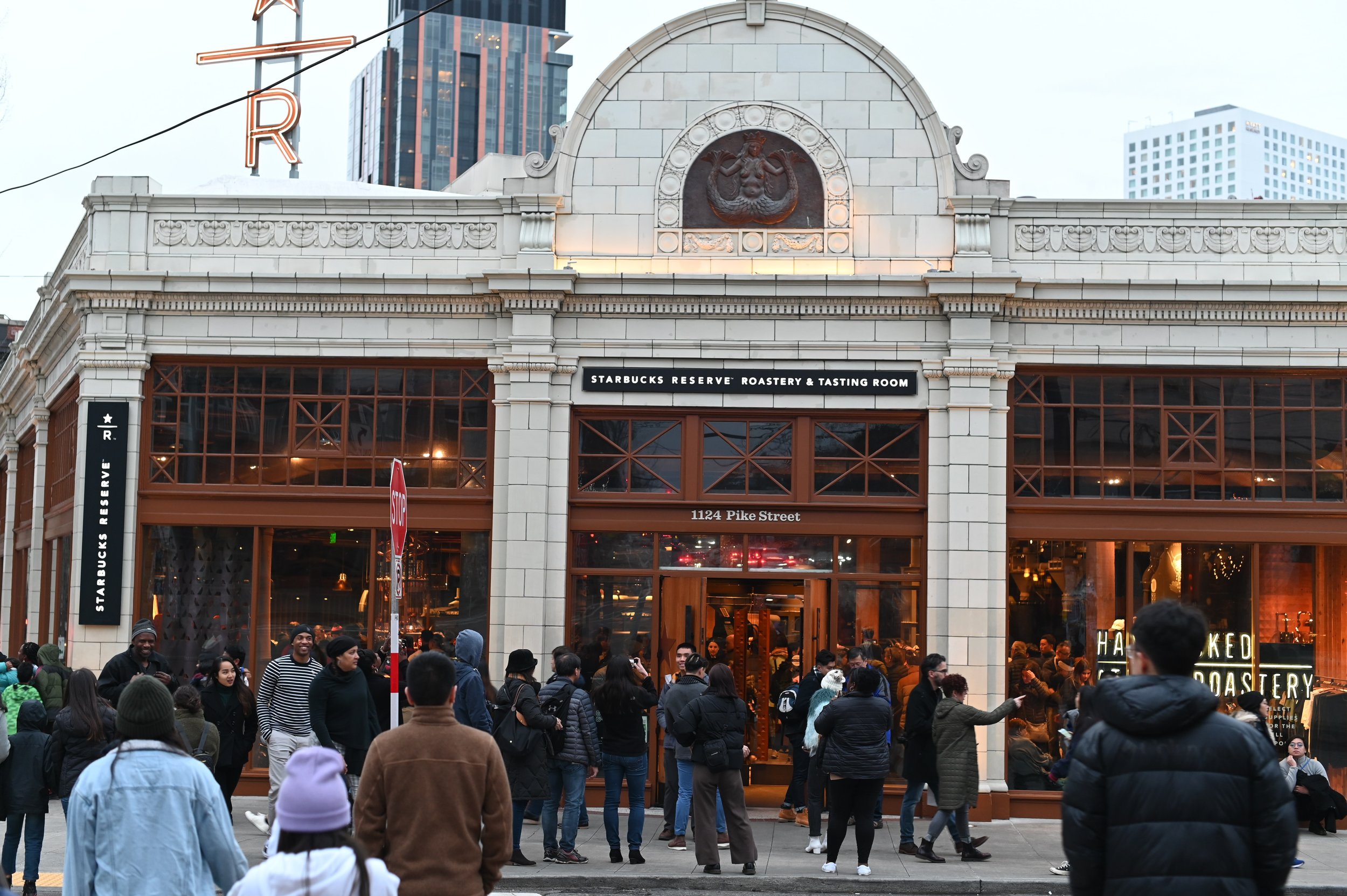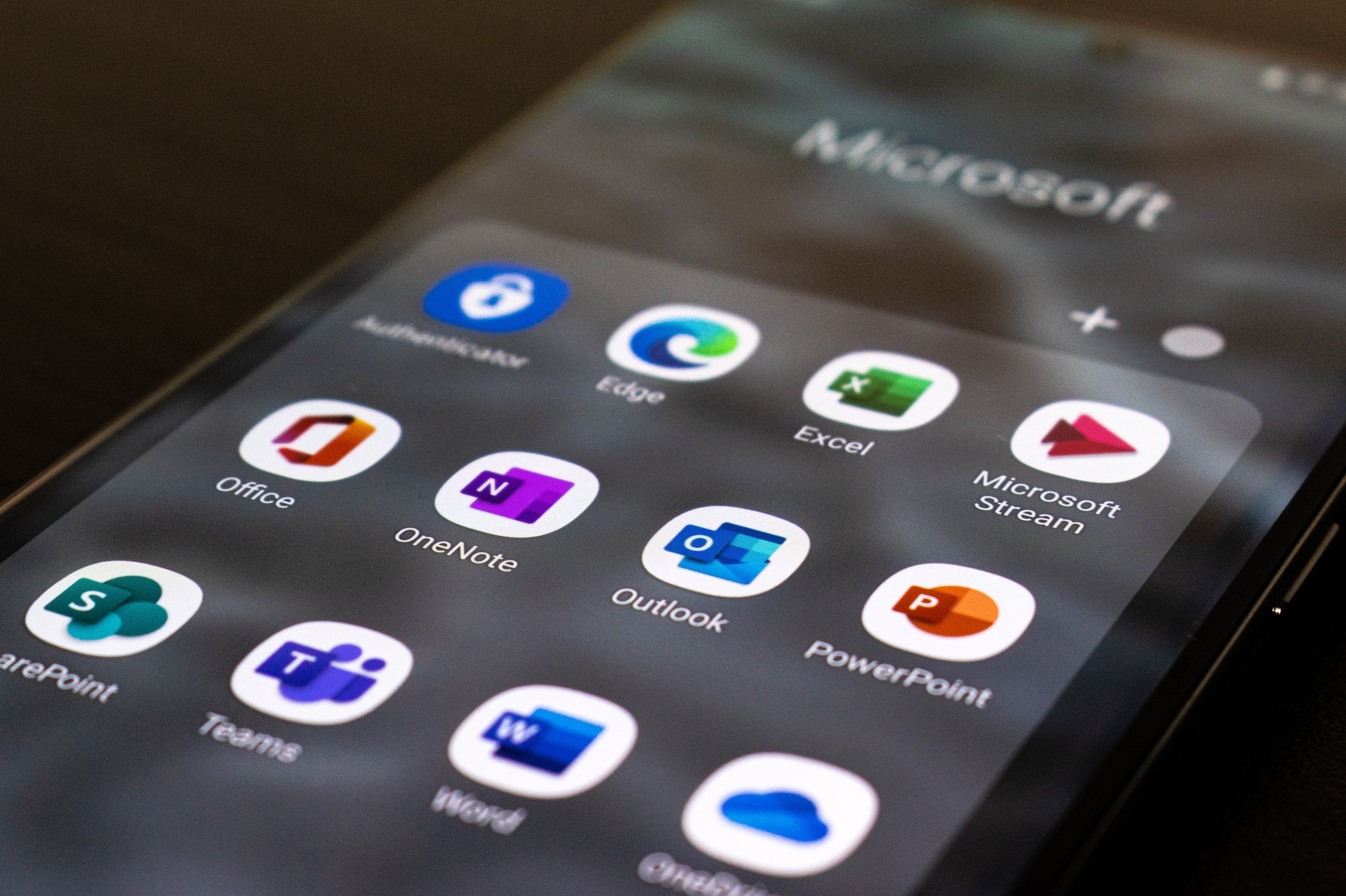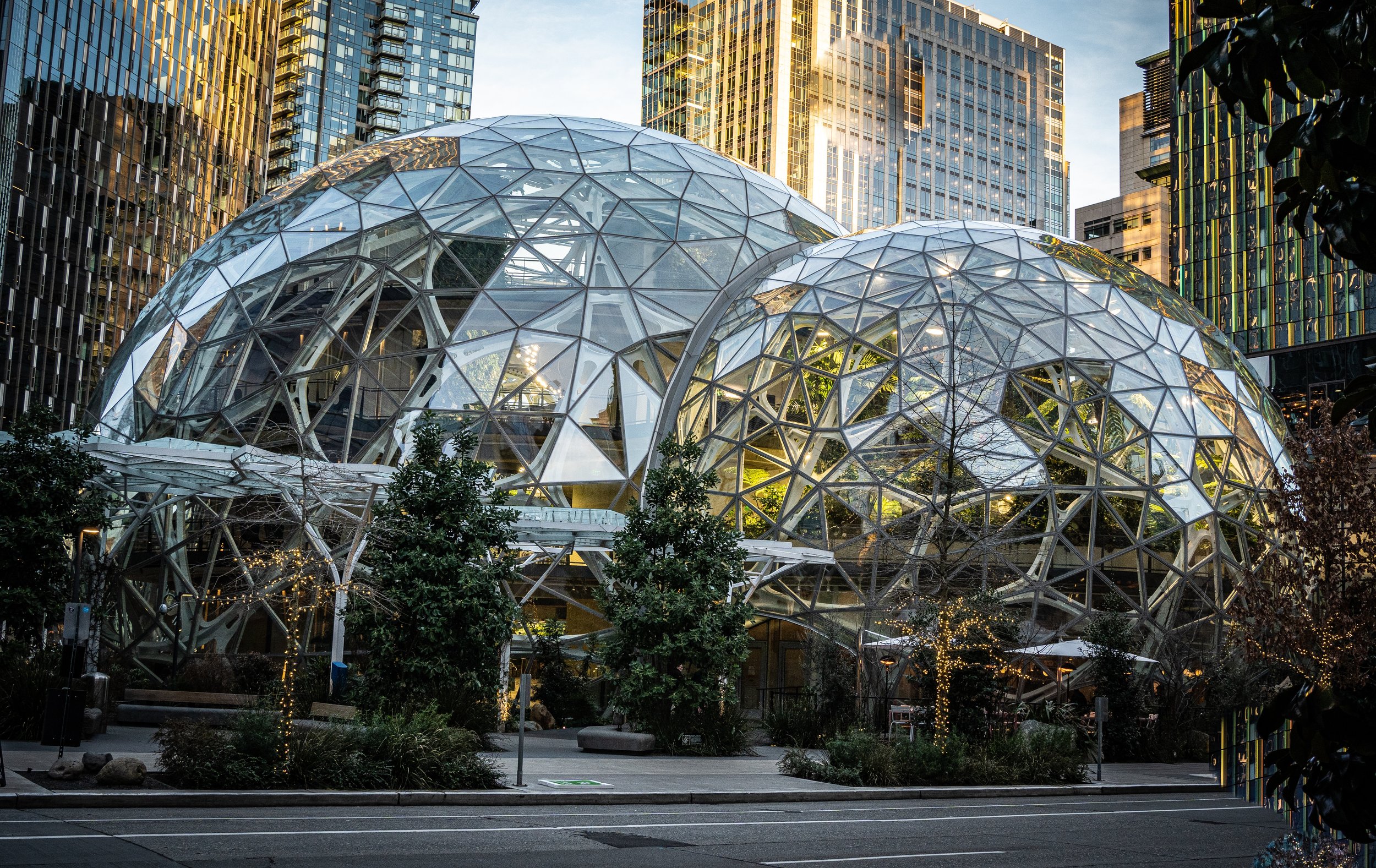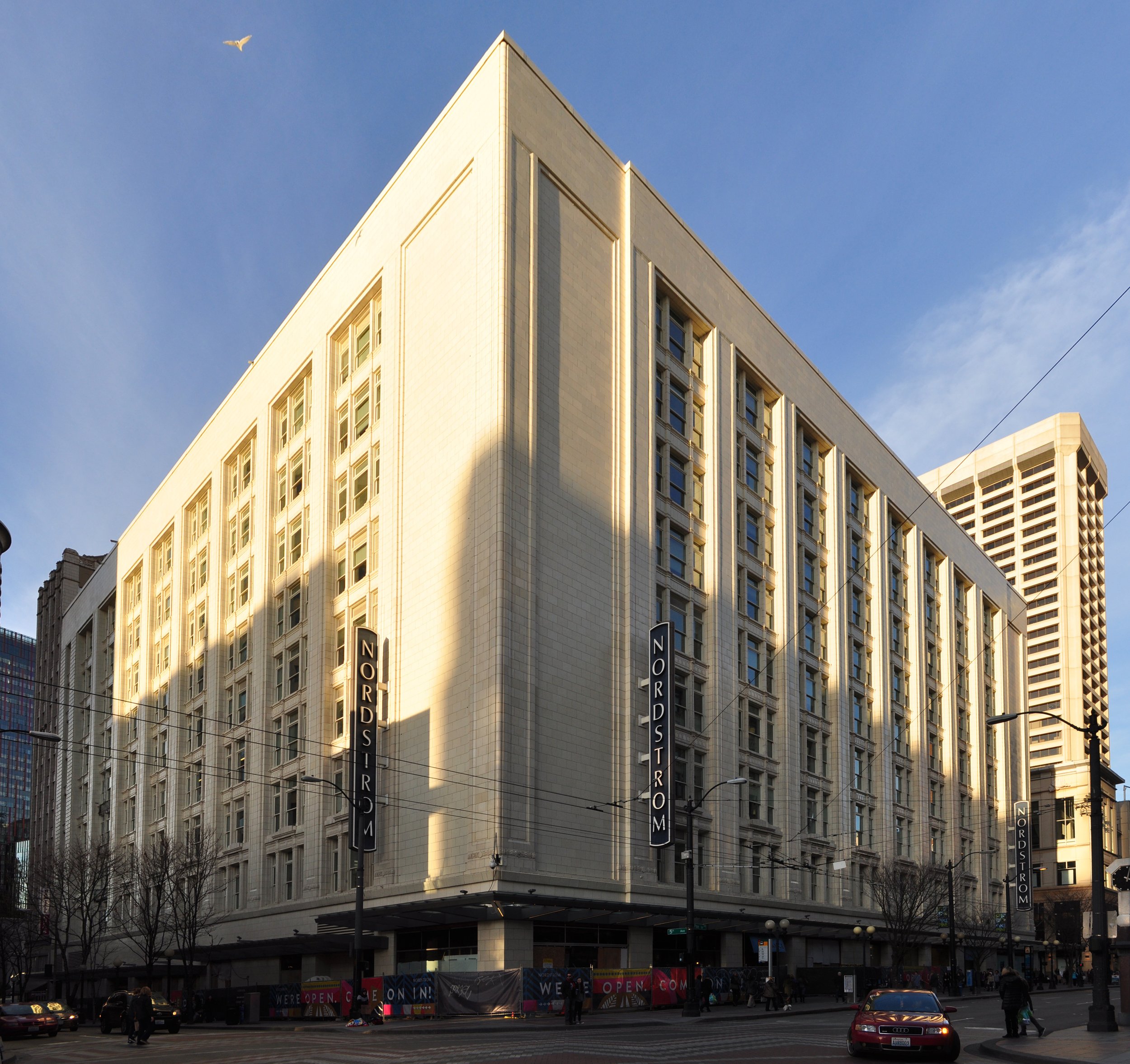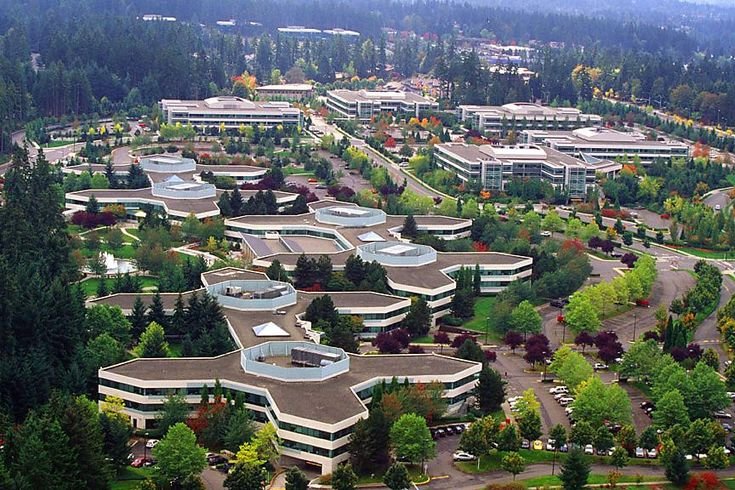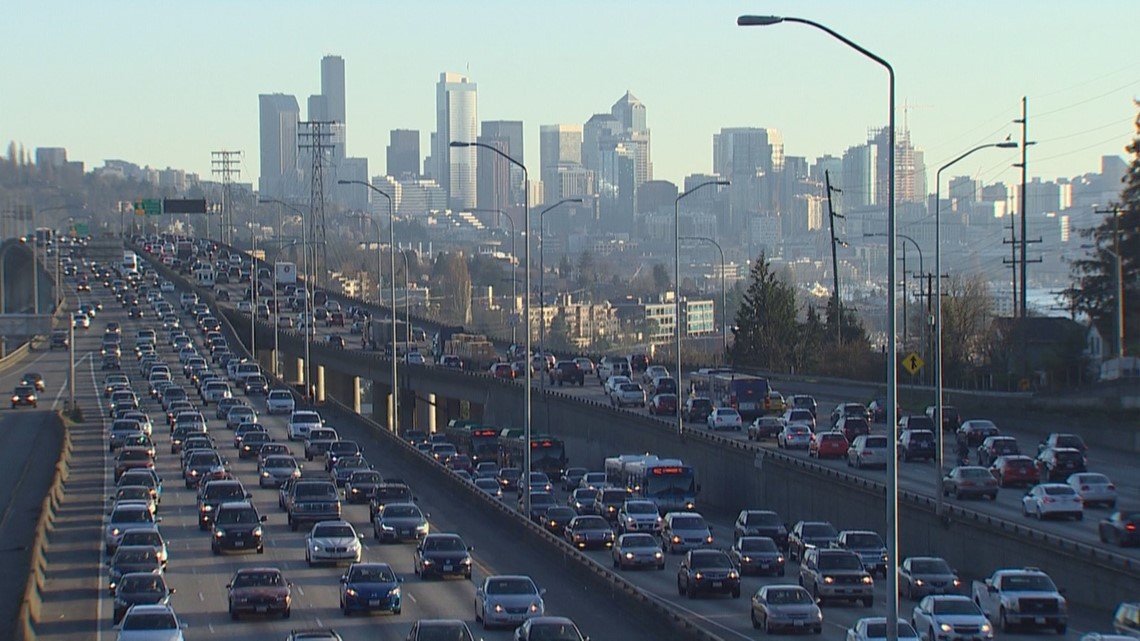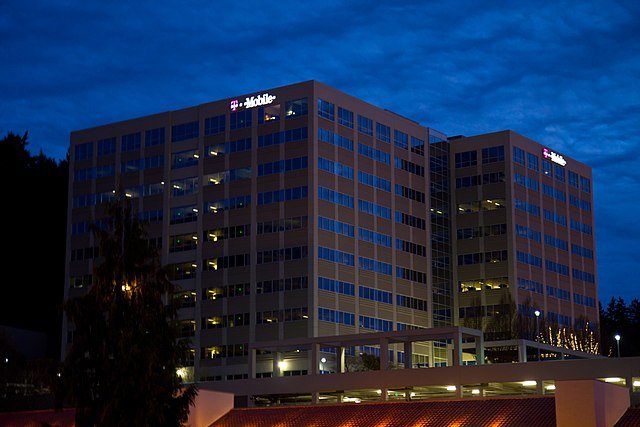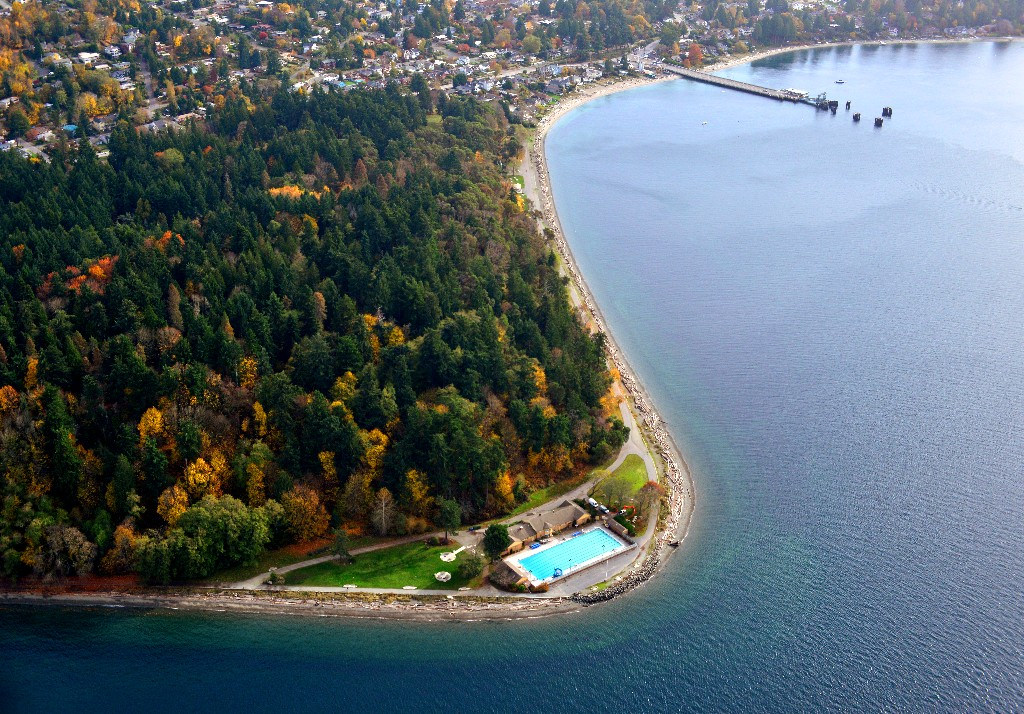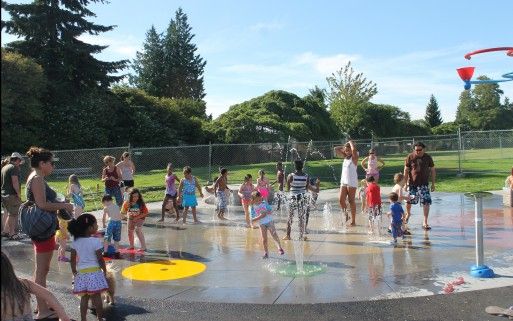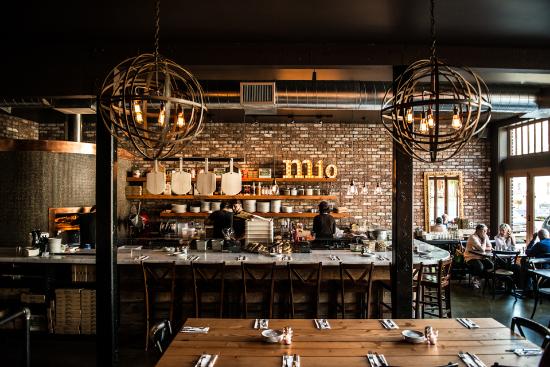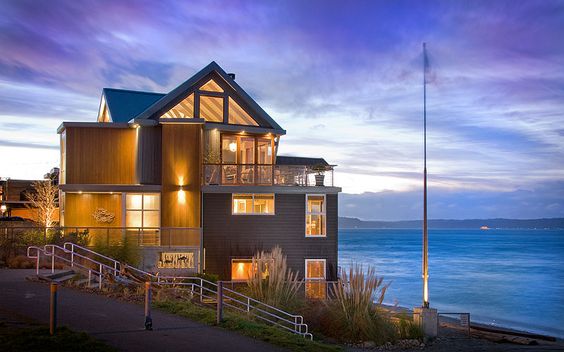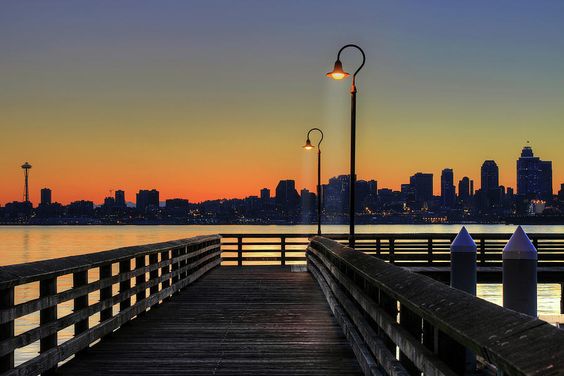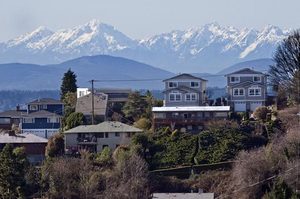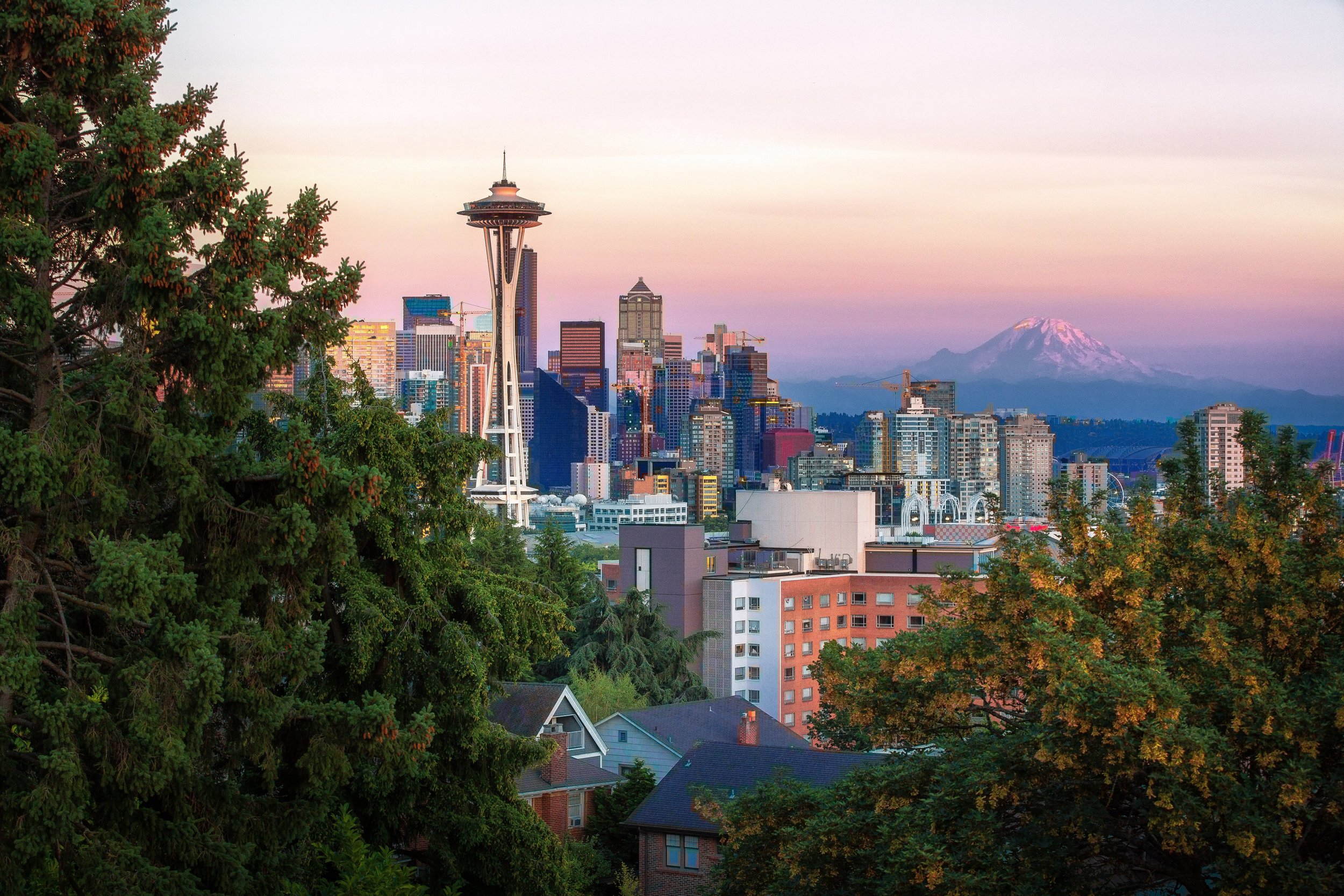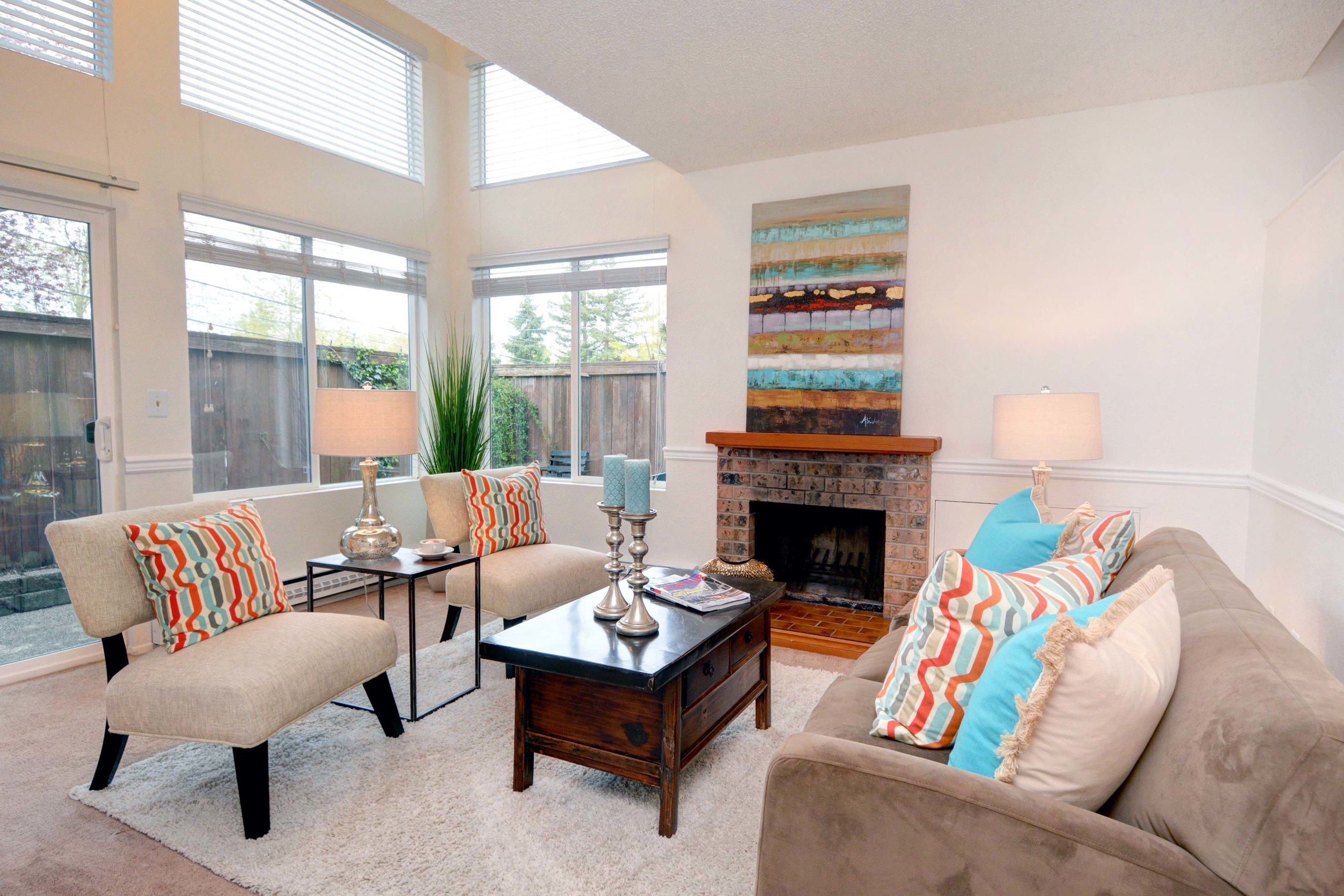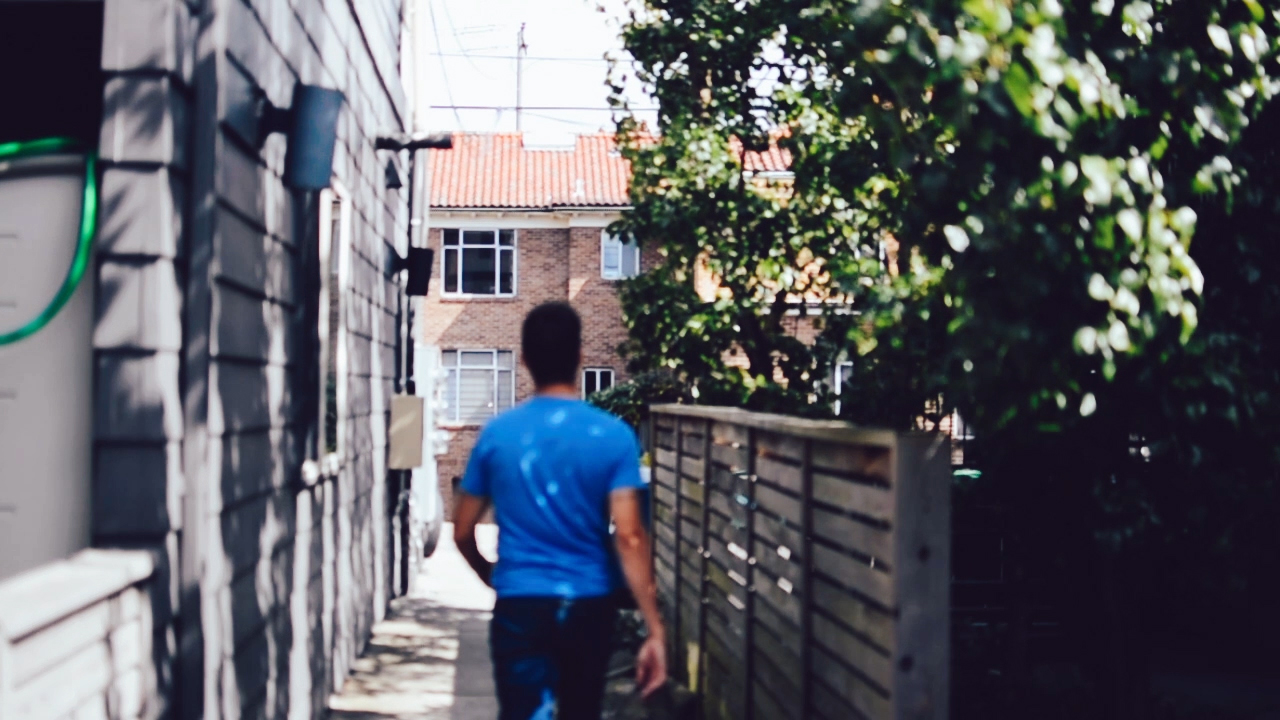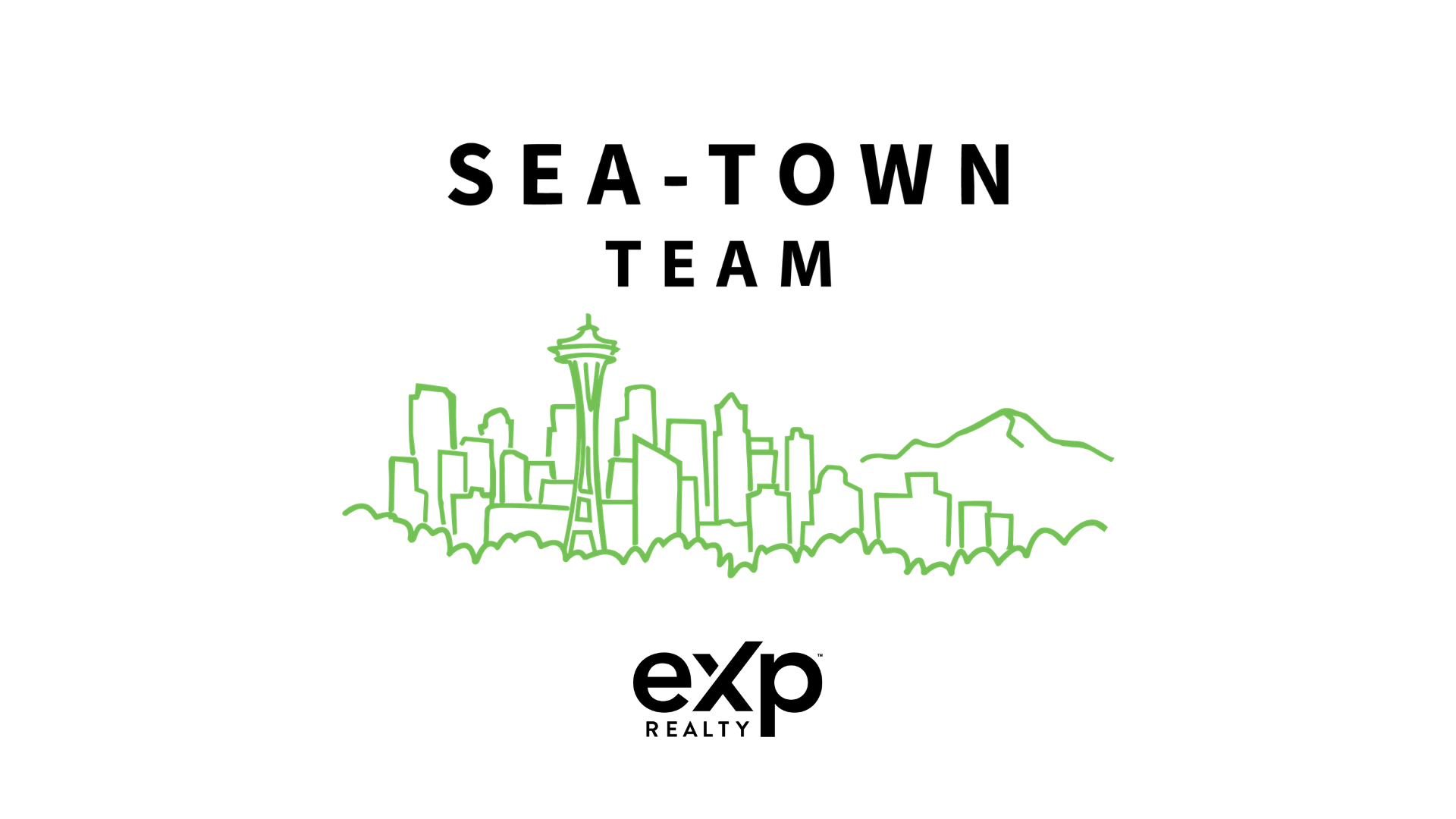Seattle is a city that has been growing in popularity over the years, drawing in people from all over the world. It's known for its stunning views of the water, mountains, and forests, thriving tech industry, and lively cultural scene. However, like any city, Seattle has its pros and cons when it comes to living there. In this post, we'll look at some of the advantages and disadvantages of living in Seattle, so you can decide if this city is the right fit for you.
As always, if you prefer, you can watch Christian Harris break it down in the video below or on his YouTube Channel,
Living in Seattle
So, the pros and cons of living in Seattle. Let’s start by taking a general look at the city of Seattle before we get into some of the nitty-gritty of the city.
The city of seattle
Seattle, with its small geographical footprint, has managed to become a world-class city that captivates the hearts of its residents and visitors alike. Nestled in the northwest corner of the country, Seattle exudes a unique charm, surrounded by vast wilderness that gives it a sense of seclusion and tranquility. It may be the largest city within a thousand miles, but its distinctiveness lies in its ability to preserve its natural beauty amidst urban development.
Flying into Seattle offers a breathtaking sight, as the airplane gracefully glides past the majestic Mount Rainier, adorned with lush forests and shimmering bodies of water. The city seems to blend harmoniously with its surroundings, almost hidden amidst the vibrant greenery. This juxtaposition of nature and urbanity sets Seattle apart from other major cities across the United States.
The allure of Seattle attracts people from all corners of the globe, creating a diverse melting pot of cultures, cuisines, and artistic expressions. Its laid-back and casual lifestyle is complemented by a vibrant cultural scene, where art, music, and innovation flourish. Seattle boasts an impressive array of world-class attractions that cater to various interests.
Aerial view of Downtown Seattle with Lake Union below in the foreground and Mount Rainier in the background
For the adventurous souls, the iconic Space Needle stands tall, offering panoramic views of the city and beyond. Pike Place Market, a historic landmark, entices visitors with its bustling atmosphere and the tantalizing aroma of freshly brewed coffee from the very first Starbucks. The Smith Tower, a testament to Seattle's rich history, showcases architectural grandeur while the Seattle Art Museum (SAM) captivates art enthusiasts with its diverse exhibits. For aviation enthusiasts, the Museum of Flight presents a fascinating journey through aviation history.
Seattle's music scene is legendary, having birthed iconic bands and artists such as Nirvana, Pearl Jam, and Jimi Hendrix. The city's venues, ranging from historic theaters like the Paramount and Moore to intimate establishments like the Triple Door or Benaroya Hall, offer memorable live performances. Countless local gems like the Show Box, Nectar Lounge, and Neumos enrich the musical landscape. Outdoor amphitheaters such as the Gorge Amphitheatre and White River provide enchanting settings for larger shows, creating unforgettable experiences for music lovers.

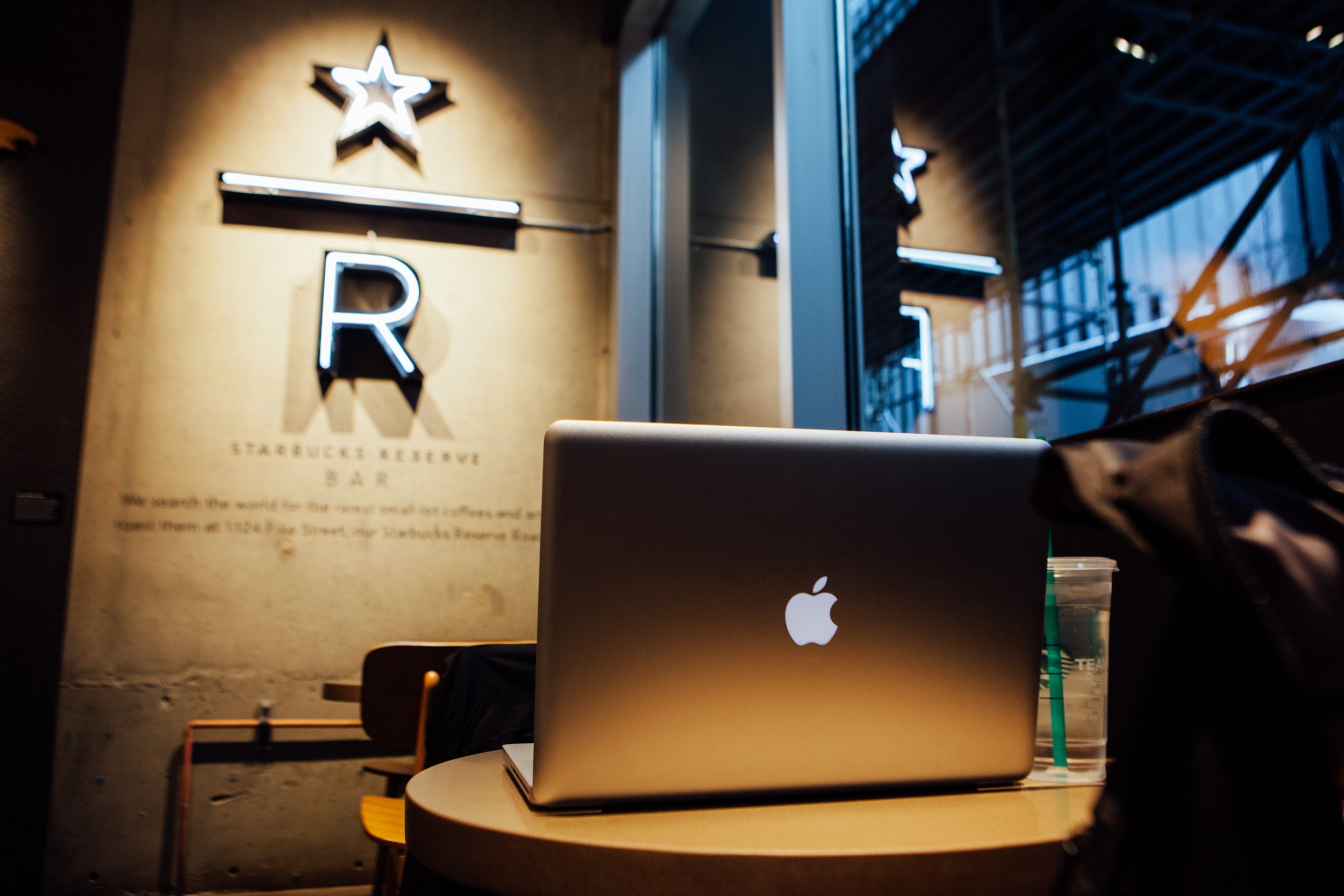





Food aficionados find themselves in a culinary paradise within the city's boundaries. Seattle boasts an abundance of restaurants, coffee shops, wineries, and breweries that cater to every palate. Neighborhoods like Ballard beckon with their hip ambiance and a remarkable concentration of 15 breweries within walking distance. Across Lake Washington lies Woodinville, Washington's wine capital, boasting over 100 wineries, where vineyards thrive in the ideal climate and soil conditions of Eastern Washington.
Seattle's dining scene offers a plethora of options, ranging from delightful local burger shacks to upscale gastronomic experiences. The city's international character ensures a tantalizing array of ethnic cuisines, each delivering mouthwatering flavors. Exploring Seattle's vibrant and quirky restaurants comes at a reasonable price, with an average meal in an inexpensive restaurant costing around $16. Mid-level dining experiences for two people can be enjoyed for approximately $80, excluding appetizers and drinks. Compared to dining out in San Francisco, Seattle proves to be more affordable, making it a win for those transitioning from the Bay Area in terms of both housing and culinary delights.
Seattle's charm lies not only in its natural beauty and cultural offerings but also in the fusion of its diverse communities and warm-hearted residents. This small city with a big heart continues to enchant and captivate those who choose to call it home.
The Great Outdoors
Seattle's natural surroundings offer an abundance of outdoor adventures, from mountains to sea and temperate rainforests. The Cascade Mountains, stretching from Canada to Oregon, serve as a majestic playground for hikers, backpackers, and skiing enthusiasts. Within this mountain range, you'll find iconic peaks such as Mount Rainier, Mount Baker, and Mount St. Helens, each offering its own unique allure.
For those craving a thrilling skiing experience, the Summit at Snoqualmie, located just an hour away from Seattle, provides convenient access to pristine slopes. The Summit at Snoqualmie also includes Alpental, a renowned ski area cherished by locals and visitors alike. To the north, Stevens Pass off Highway 2 and White Pass, a mere 12 miles outside Mount Rainier National Park, present additional options for exhilarating skiing adventures.
Venturing beyond the Cascade Mountains, the Olympic Mountains on the Olympic Peninsula beckon with their awe-inspiring beauty. Just a few hours' drive or a short ferry ride from Seattle, this stunning peninsula is a haven for weekend getaways, camping excursions, backpacking expeditions, or simply unwinding in the soothing embrace of natural hot springs.
Seattle's proximity to the ocean, lakes, and rivers offers a plethora of recreational opportunities. From kayaking along serene waterways to fishing in abundant lakes and rivers, from boating adventures to scuba diving explorations, and even crabbing in the Puget Sound, outdoor enthusiasts can indulge their passion for aquatic adventures.
Even within the city limits, Seattle embraces a bike-friendly culture, boasting an extensive network of dedicated bike lanes and paths that crisscross the urban landscape and various neighborhoods. Biking through the city allows residents and visitors to immerse themselves in the vibrant atmosphere while enjoying the convenience of two-wheeled transportation.
Seattle's great outdoors truly offers a playground for nature lovers, thrill-seekers, and those seeking solace in the serenity of natural landscapes. The mountains, sea, and temperate rainforests that grace the region ensure that there is always an exciting outdoor adventure waiting to be discovered, just beyond the city's bustling streets.
The Job Market
Seattle's thriving job market stands as a significant draw for individuals seeking professional opportunities. Over the years, countless people have flocked to the city, enticed by its robust employment prospects, and the trend continues today. The diverse array of industries and the presence of major players contribute to the city's economic vitality.
One of the driving forces behind Seattle's job market is the tech industry. Renowned companies such as Amazon, Microsoft, and T-Mobile have established their headquarters in the area, offering a wealth of employment opportunities for tech-savvy professionals. These industry giants have not only elevated Seattle's status as a tech hub but have also fostered a spirit of innovation that permeates the city.
Beyond the tech sector, Seattle boasts a remarkable array of prominent companies that contribute to its economic prowess. Powerhouses like Starbucks, Costco, and Expedia have made their mark in the city, providing diverse career paths across various sectors. Additionally, the headquarters of Alaska Airlines calls Seattle home, further adding to the city's robust job market.
One of the notable advantages related to employment and finances in Seattle is the absence of state income tax. This factor, combined with competitive salaries offered by many companies, creates a favorable environment for individuals looking to maximize their earnings and financial stability.
For those with a passion for the great outdoors, Seattle offers a plethora of career opportunities in this realm as well. From becoming a park ranger, and guiding outdoor expeditions, to working as ski or snowboard instructors, the city provides an ideal backdrop for pursuing a career that aligns with a love for nature and adventure.
Seattle's job market continues to flourish, providing a wide range of employment prospects across various industries. The presence of tech giants, along with a diverse corporate landscape, ensures that individuals seeking professional growth and fulfillment will find ample opportunities within the city's dynamic and thriving economy.
The Climate
Seattle only ranks 32nd among the nations 50 biggest cities for precipitation.
Seattle's climate and temperature offer a delightful advantage to residents and visitors alike. The city experiences a captivating summer season that can only be described as amazing. Warm sunshine, gentle breezes, and temperatures hovering around 80 degrees create the perfect ambiance for outdoor enjoyment. With numerous rivers, lakes, and creeks adorning the region, clean and refreshing water sources are abundant, enhancing the allure of Seattle's lush green paradise.
Furthermore, Seattle's climate contributes to affordable electricity rates, making it one of the most cost-effective regions in the country in terms of power consumption. The abundance of hydroelectric power derived from the city's water resources ensures reliable and reasonably priced electricity, a welcome relief for those accustomed to droughts, water shortages, and expensive utility bills.
Now, let's address the elephant in the room: rain. Seattle and the Pacific Northwest have gained a reputation for their precipitation, but here's a little secret—it's not as daunting as it may seem. In reality, Seattle's annual rainfall is actually lower than the national average of 38 inches per year. Thanks to the city's proximity to the ocean, the temperate climate keeps the rainfall relatively moderate. Seattle receives only about four and a half inches of snowfall annually, further solidifying its reputation for milder weather conditions.
While Seattle may have more cloudy and rainy days compared to other parts of the country, heavy downpours are relatively rare. In fact, the city experiences an average of 155 days with some degree of cloud cover or rainfall, whereas the rest of the country averages 106 days. Although the misty and overcast days are more frequent, the three months of clear and sunny summers that grace Seattle are nothing short of paradise.
In summary, Seattle's climate offers a favorable balance. While it may not boast endless sunny days throughout the year, the region's temperate and mild climate, coupled with its relatively lower rainfall, make it a delightful place to reside. The summer season shines with its unparalleled beauty, providing ample opportunity to revel in outdoor activities and bask in the warm embrace of nature. So, leave behind the worries of scorching heat, water scarcity, and exorbitant electricity bills, and embrace Seattle's inviting climate that offers a refreshing respite from the extremes found elsewhere.
The People of Seattle
The people of Seattle add a vibrant and diverse element to the city's tapestry. In my experience, they have been incredibly friendly and helpful, making it a pleasure to interact with them. Seattle's status as a bustling metropolis with a significant influx of transplants creates an exciting environment where you never know who you might meet. The city's rich cultural mix and the multitude of backgrounds represented provide a constant source of fascination.
Living in a city as diverse as Seattle keeps you on your toes, as you never know where someone might be from or what unique experiences they bring to the table. For those who thrive on meeting new and interesting people, Seattle offers endless opportunities for connections and friendships to flourish. Facebook groups dedicated to various interests abound, creating virtual communities where individuals can share their passions and connect with like-minded individuals. Additionally, there are "buy nothing" groups where people selflessly offer free items to others, fostering a sense of community and goodwill.
Seattle also boasts free and inexpensive tool libraries scattered throughout the city, catering to the DIY enthusiasts and home improvement projects. Furthermore, neighborhood roadside book libraries can be found in different areas, presenting an opportunity for literary exchanges as you stumble upon those charming mailbox-like structures during leisurely walks.
Now, let's address the infamous "Seattle freeze." It is true that some individuals may have different experiences when it comes to the perceived aloofness of Seattleites. However, I firmly believe that expectations shape our experiences. If one expects people to be cold and distant, they may find evidence to support that notion. Conversely, if one approaches interactions with warmth and openness, they are more likely to find individuals who are warm and inviting in return.
It is important to note that Seattle has a relatively low percentage of native-born residents due to the significant influx of people drawn to the area by high-paying job opportunities. This may contribute to an initial inclination for individuals to keep to themselves. However, it should not discourage newcomers from seeking connections and forging meaningful relationships. Regardless of where you move, it is essential to put yourself out there, make the first move, and seek out people who share your interests and hobbies. Getting involved in your neighborhood and community, engaging in local events and activities, and being open to new experiences will undoubtedly help you build connections and create a sense of belonging.
While Seattle may not possess the same level of neighborly warmth or overt friendliness found in some other regions, it offers a wealth of opportunities to connect with individuals who share your passions and aspirations. Embrace the diversity, be proactive in building relationships, and you will find that Seattle's people can enrich your life in countless ways.
Neighborhoods of Seattle
Seattle and its surrounding areas boast a diverse range of neighborhoods, each with its own distinct character and atmosphere. Whether you're a hipster looking for an artsy enclave or prefer the tranquility of a quieter neighborhood, Seattle has something to offer for everyone.
If you enjoy the company of creative souls, North Seattle's Ballard or Wallingford neighborhoods may be your cup of tea. These areas exude a trendy vibe with their hipster cafes, unique boutiques, and local art scenes. You can immerse yourself in the bohemian culture and join the creative community that thrives in these neighborhoods.
For a more laid-back experience, West Seattle offers a peaceful retreat from bustling city life. This area is known for its scenic beauty, with stunning waterfront views and serene parks where you can unwind and enjoy nature's splendor. West Seattle provides a respite from the urban frenzy, allowing you to recharge and relax.
If you're seeking vibrant nightlife and a bustling urban atmosphere, Capitol Hill in the central district awaits. This neighborhood pulses with energy, boasting a diverse array of bars, clubs, and music venues. It is a hub for Seattle's LGBTQ+ community and is known for its lively street festivals, eclectic shops, and thriving arts scene.
Alternatively, you can explore the up-and-coming neighborhoods of White Center, Georgetown, or Columbia City. These areas offer a grittier, more offbeat experience, with a blend of dive bars, unique eateries, and emerging artistic communities. They provide a glimpse into Seattle's evolving landscape, where creativity and entrepreneurship are nurtured.
If a taste of luxury beckons, downtown Seattle near Westlake Mall presents an array of upscale shopping, fine dining, and high-end experiences. This vibrant urban center boasts renowned department stores, fashion boutiques, and gourmet restaurants, catering to those with discerning tastes.
Furthermore, if you're open to venturing beyond the city limits, the nearby suburbs offer a different kind of allure. Crossing the floating bridge to the Eastside brings you to swanky suburbs with well-manicured streets, spacious homes, and upscale shopping centers. These areas provide a quieter, more residential setting while still offering proximity to the city's amenities.
It's important to note that the walkability of different neighborhoods varies. Some areas are designed with pedestrian-friendly streets, allowing easy access to shops, restaurants, and grocery stores within walking distance. In contrast, certain neighborhoods may require the use of a vehicle or reliance on public transportation to navigate and explore the city.
Seattle's neighborhoods are as diverse as its residents, offering an array of lifestyles, cultures, and experiences. Whether you prefer a bohemian enclave, a tranquil retreat, an urban playground, or a refined suburban oasis, you'll find a neighborhood that suits your preferences and provides a unique sense of community. So, take the time to explore and discover the diverse tapestry of neighborhoods that make Seattle a vibrant and captivating place to call home.
Public Transportation
Seattle offers convenient public transportation options for those who choose not to own a car. The King County Metro bus system provides extensive coverage throughout the city, making it easy to navigate different neighborhoods. Additionally, the Sound Transit Link light rail is available for commuters traveling from the surrounding suburbs or outside the city center. This light rail system is continuously expanding to serve more areas beyond Seattle.
Seattle Water Taxi
Due to its proximity to water bodies, Seattle is one of the few regions in the country with passenger and vehicle ferries. These ferries are an excellent mode of transportation for crossing the waters in the area. Whether you want to explore the Olympic Peninsula or visit the beautiful San Juan Islands, the ferry service offers a scenic and enjoyable journey. Notably, you can even take the Victoria Clipper from Seattle to Victoria BC in Canada, providing an exciting international travel opportunity. During the ferry rides, you may be lucky enough to witness breathtaking sights such as whales and dolphins, further enhancing the experience. Taking a ferry for a day trip is a popular activity among locals and visitors alike.
For shorter trips within the city, Seattle provides various options for electric bikes and scooter sharing. These alternative modes of transportation offer a convenient and eco-friendly way to get around and explore the city's vibrant neighborhoods.
So some of the downsides of Seattle, because of Seattle’s desirability to live in, is that the cost of living is fairly high here. Although we’ve covered this in a previous blog post [here] and as well as in Christian’s video on the Living in Seattle Channel we’ll just touch on it here as part of weighing up the pros and cons of living in Seattle.
Cost of Living
Seattle is known for its high cost of living, and it's important to consider the financial aspects before deciding to reside in the city. The Department of Housing and Urban Development sets income thresholds to determine low-income status in Seattle. For a family of four, the annual income should exceed $72,000 to avoid being classified as low-income. For a single person, the threshold is around $50,000 per year, which translates to approximately $24 per hour for a full-time employee working 40 hours a week. Generally, low income is considered to be 80% of the median household income for the region. In Seattle, the median household income stands at $93,000 per year.
One of the contributing factors to the high cost of living in Seattle is the housing prices. As of January 2022, the median sale price for residential homes in Seattle is $762,000. However, it's worth noting that wages in Seattle are generally higher compared to many other parts of the country, and home values continue to increase. This means that homeowners have the advantage of building equity and wealth through homeownership at a faster rate than in areas with lower home prices or slower housing value appreciation.
On the downside, Seattle also has a relatively high sales tax of 10.25% in the Seattle area, with Washington state's sales tax alone being 6.5% of that total.
While the high cost of living in Seattle can be a challenge, it's important to weigh it against the potential advantages, such as higher wages and the opportunity to build equity through homeownership.
Click the link to our guide to buying a property and get on your path to home ownership. Not convinced? Then schedule a call with Christian and the Sea-Town Team and experience why the Sea-Town Team is one of Seattle’s leading brokerages for first-time buyers.
Traffic
Seattle is known for its traffic congestion, although it may not reach the levels seen in cities like Los Angeles or New York. The severity of the traffic largely depends on the time of day and specific routes. During peak commuting hours, traffic can be challenging, causing delays and longer travel times.
However, Seattle offers some solutions to mitigate the impact of traffic. The use of navigation apps like Waze can help drivers find the most efficient routes and avoid congestion. Additionally, public transportation can be a viable alternative. Many bus routes in the area have dedicated bus lanes, allowing buses to bypass traffic and provide faster travel times, especially during peak hours. Taking advantage of public transportation, such as buses and light rail, can help commuters navigate the city more efficiently.
For those with flexible schedules, traveling during non-peak hours can significantly reduce the impact of traffic congestion. Planning ahead and using real-time traffic updates can help individuals optimize their travel routes and avoid the busiest periods.
While Seattle's traffic can be a concern, proactive measures such as utilizing navigation apps, exploring public transportation options, and planning travel during non-peak hours can help alleviate some of the challenges associated with commuting in the city.
Homelessness, Mental Illness, and Drugs
One of the significant challenges that Seattle faces is the issue of homelessness, mental illness, and drug addiction. It is considered one of the cons of living in the city. Seattle has a large homeless population, ranking third in the country behind New York and Los Angeles. The homeless population has increased by 30 percent since 2010, indicating a growing concern.
The city recognizes the seriousness of the issue and has allocated a substantial amount of taxpayer money, approximately $156 million in 2022, to address the homelessness epidemic. Numerous nonprofit organizations are actively working to alleviate the problem and provide assistance to those in need.
However, despite these efforts, the homelessness situation remains a challenge, particularly in the central downtown core. The city is actively working to address the root causes of homelessness and to improve public safety and address public nuisance issues associated with it.
It's important to note that the homelessness issue in Seattle is not isolated and is a complex social problem faced by many cities across the country. While Seattle is making efforts to address the issue, it remains an ongoing challenge that requires ongoing support, resources, and collaboration from both public and private sectors to find effective solutions.
Suburbs vs. The City
Choosing between living in the suburbs or the city is an important consideration when moving to Seattle. It is essential to understand the different lifestyles and atmospheres offered by each option. While this aspect can be subjective, it is worth mentioning as a potential con because it is crucial to find a location that aligns with your preferences.
Some individuals initially choose the suburbs, expecting a quieter environment and more space, only to find that it lacks the vibrancy and amenities they desire. They may find themselves frequently driving into the city for entertainment and socializing. On the other hand, some people may move to the city seeking a bustling and dynamic atmosphere, only to discover that it can be too noisy and overwhelming for their liking. In such cases, they might consider moving to the suburbs for a quieter and more spacious living environment.
It's important to assess your lifestyle preferences and priorities before making a decision. Consider factors such as proximity to work, access to amenities, noise levels, community atmosphere, and the type of environment that suits your needs and preferences. Exploring different neighborhoods and areas in Seattle can help you find the right fit for your desired lifestyle.
Politics
Seattle is known for its progressive and liberal political climate. If you align with these ideologies, you are likely to feel at home and find like-minded individuals in the city. However, if you lean conservative or have more moderate political views, you may be more comfortable in the suburbs where political perspectives vary.
It's important to note that political affiliations and beliefs can be subjective and may vary from person to person. Seattle's political landscape is diverse, and while it tends to lean left, there are still individuals with differing opinions and political ideologies throughout the city and its surrounding areas. It's advisable to conduct your own research and engage with the local community to gain a better understanding of the political climate and find the right fit for your own beliefs and values.
In conclusion….
In conclusion, living in Seattle offers a unique combination of pros and cons that should be considered when contemplating a move to the Emerald City. The natural beauty of the surrounding area, with its mountains, forests, and waterways, provides a stunning backdrop for outdoor enthusiasts and nature lovers. The job market is strong, particularly in the tech industry, with major companies like Amazon and Microsoft calling Seattle home. The city's friendly and diverse population creates opportunities for meeting new people and experiencing different cultures.
The climate in Seattle, while characterized by frequent rain and cloudy days, boasts pleasant summers that make up for the drearier seasons. The availability of public transportation, including buses, light rail, and ferries, makes it feasible to navigate the city without a car. However, traffic can still be a challenge during peak times.
On the downside, the cost of living in Seattle is considerably higher than the national average, making housing affordability a concern for many. The issue of homelessness, mental illness, and drug addiction is a significant challenge that the city continues to grapple with, particularly in the downtown core. Choosing between living in the suburbs or the city proper is a crucial decision, as each offers a different lifestyle and atmosphere.
The political climate in Seattle leans heavily towards progressivism and liberalism, which can be positive or negative depending on one's own political beliefs and values. It's important for individuals to research and engage with the community to find the right fit for their own perspectives.
In the end, living in Seattle requires careful consideration of these pros and cons. It is a city of opportunity, natural beauty, and vibrant culture, but it also comes with its share of challenges. By weighing these factors against personal preferences and priorities, individuals can make an informed decision about whether Seattle is the right place to call home. After all, Christian and the Sea-Town Team have called it home for many years, adoring the quality of life and the diversity that the city brings.
So, if you’re still in doubt about your move down here or if you would like to start reviewing your options then book a call with Christian or simply text him on 206.276.9744 to reach out.






